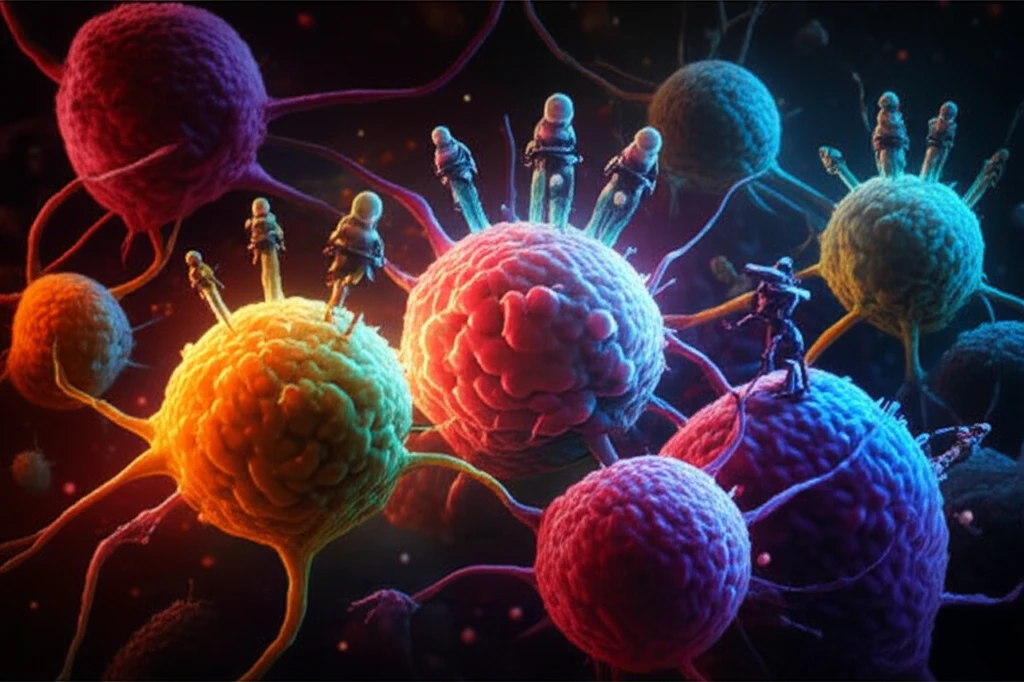
Pancreatic Cancer Breakthrough: How SRC-3 Inhibition Could Change Everything
"New research reveals SRC-3 as a key player in pancreatic cancer growth, offering hope for targeted therapies and improved survival rates."
Pancreatic cancer, particularly pancreatic ductal adenocarcinoma (PDAC), remains one of the most challenging and deadly cancers to treat. With a five-year survival rate of less than 8%, the need for new therapeutic approaches is urgent. Traditional treatments often fall short, highlighting the necessity for innovative strategies that target the unique characteristics of this aggressive disease.
Recent research has shed light on a promising new target: Steroid Receptor Coactivator-3 (SRC-3). This protein, involved in numerous growth-signaling pathways, has been identified as a key driver in the development and progression of PDAC. SRC-3's role in other cancers like breast and prostate has already been explored, but its significance in pancreatic cancer is just beginning to be understood.
This article delves into the groundbreaking findings regarding SRC-3 inhibition as a potential treatment for pancreatic cancer. We'll explore how scientists are targeting this protein to slow tumor growth, improve survival rates, and offer new hope to those affected by this devastating illness. By understanding the mechanisms behind SRC-3 and its impact on pancreatic cancer, we can pave the way for more effective and targeted therapies.
What is SRC-3 and Why Does It Matter in Pancreatic Cancer?

SRC-3, also known as NCOA3, AIB1, pCIP, ACTR, RAC3, or TRAM1, is a protein that acts as a master regulator in numerous cellular processes. It influences a wide range of growth-signaling pathways, making it a crucial factor in cancer development. SRC-3's involvement in other cancers has led researchers to investigate its role in PDAC, where it appears to be significantly overexpressed.
- Cell Proliferation: SRC-3 promotes rapid cell division, a hallmark of cancer.
- Migration: SRC-3 enhances the ability of cancer cells to move and spread.
- Invasion: SRC-3 helps cancer cells penetrate surrounding tissues, facilitating metastasis.
The Future of Pancreatic Cancer Treatment: Hope on the Horizon
While the research on SRC-3 inhibition is still in its early stages, the results are promising. Targeting SRC-3 offers a new avenue for treating pancreatic cancer, potentially leading to improved survival rates and a better quality of life for patients. As research progresses, we can look forward to more effective, targeted therapies that address the unique challenges of this devastating disease. The journey is far from over, but the path toward hope is now clearer than ever.
